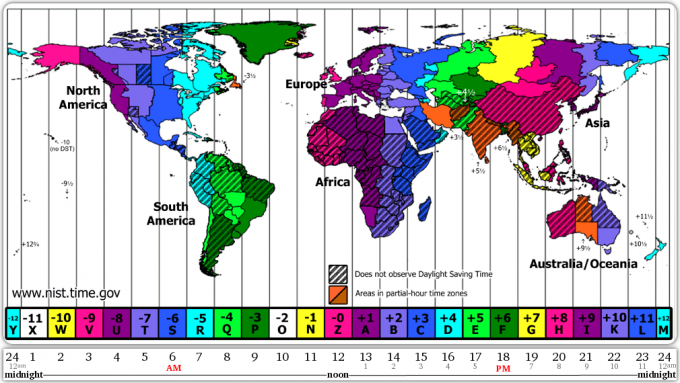Peak efficiency requires athlete’s minds and bodies to be in sync, therefore jet lag can have potential serious effects on athletes performance. Crossing time zones (eastwards or westwards) causes a desynchronization of an individual’s circadian rhythm. The primary function of the circadian rhythm is to allow the body to adapt to various external environments. Jet lag is a concern for athletes because it effects VO2 max, grip strength, peak forces, etc., are all susceptible to jet lag, inhibiting athletes from performing their best. This study was conduced to examine the impact of jet lag on athletes. Due to having to travel long distances and compete at their peak performance athletes are susceptible to jet lag.
Case Study 1: Focused on the 2016 summer Olympics occurring in Rio de Janeiro. Travel across three time zones westwards (UK- Rio de Janeiro. There is a four hour time change for the UK and would typically result in jet lag for two days. Due to the small difference in time zones light exposure is not much of a concern but it is recommended that teams schedule to leave 2-3 days earlier so that they can adjust. Case study 2: travel across four time zones eastwards: UK to Dubai, 4 hours advance. This trip would usually produce jet lag for approximately 4 days therefore it is suggested that teams schedule to leave 4 days earlier so they can adapt. This time change causes a difference in meal times, which could be aided by adjusting wake time. In an attempt to maintain a normal sleep schedule an individual could start going to bed 30 minutes earlier every day prior to departure. Case Study 3: multiple trips: UK-New Zealand- USA. This trip has the maximum time zone difference possible, and by the standard rule of thumb would induce 13 days of jet lag. Light exposure is very sensitive in this case because of the many different time zones that are being crossed. In the case preadjustment strategies would definitely have to be implemented by teams in order to reduce the effects of jet lag. Suggest reversing the phase shift and using a pre-adaptation strategy while in New Zealand. When crossing various time zones symptoms from jet lag may arise but there are ways to adapt to those conditions such as exposure to light, melatonin and other hormones, and food and exercise.
Forbes-Robertson S, Dudley E, Vadgama P, Cook C, Drawer S, Kilduff L. Circadian Disruption and Remedial Interventions: Effects and Interventions for Jet Lag for Athletic Peak Performance. Sports Medicine [serial online]. March 2012;42(3):185-208 24p. Available from: CINAHL Plus with Full Text, Ipswich, MA. Accessed March 30, 2016.
